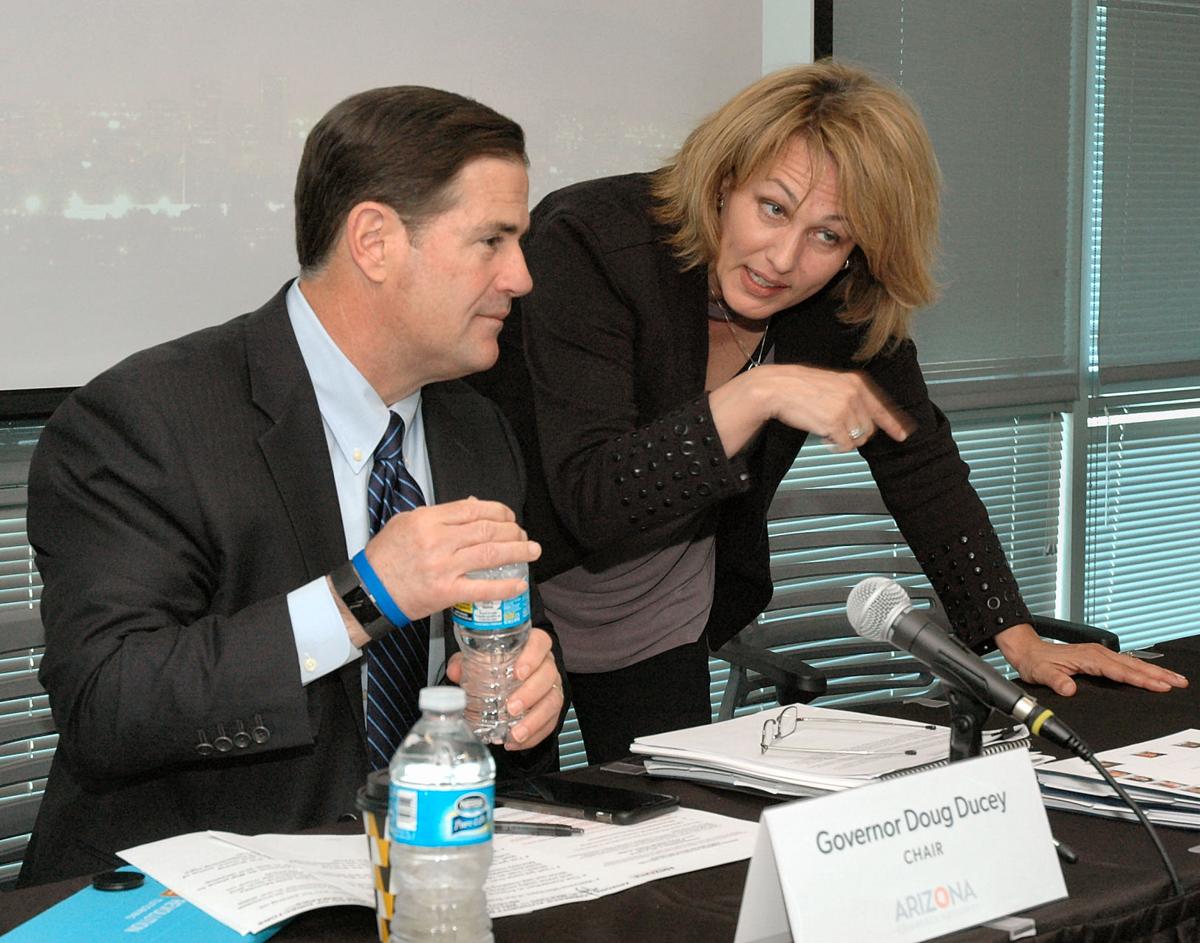PHOENIX — Arizona’s three universities are in compliance with constitutional requirements to keep instruction “as nearly free as possible,” Gov. Doug Ducey said Thursday, despite what Attorney General Mark Brnovich contends.
“Our universities are accessible and affordable,” the governor said.
The governor said he and lawmakers had to make some difficult decisions in prior years, making sharp cuts in funding for higher education as well as other priorities. It is only recently the state has started to restore some of those cuts.
What that means, he said, is the Board of Regents is doing the best it can to keep tuition not only affordable but maintain a high level of education, with U.S. News and World Report saying Arizona State University is the No. 1 most innovative school in the country, “beating out MIT and Stanford.”
“So by those metrics I think the universities are oases of excellence,” Ducey said. “And they are also quite a value.”
More to the point, the governor said he believes the regents, in setting tuition — and even in imposing sharp increases during the past 15 years — are keeping the cost of instruction within what the constitution requires.
Ducey, in his comments Thursday, did more than disagree with Brnovich’s conclusion that the tuition is unconstitutionally too high.
He also criticized the attorney general for seeking to resolve the issue by filing suit — and doing so without first talking the to the regents.
“I’m not a big fan of lawsuits,” the governor said. “When I can I like to reduce the number of lawsuits rather than expand them.”
And Ducey worried that, no matter what the results, the taxpayers could be the losers.
“I’m hopeful that we’re not going to be spending a lot of taxpayer dollars with government entities suing government entities,” he said.
Brnovich declined to respond.
On a related note, Ducey said that, as far as he’s concerned, those in the Deferred Action for Childhood Arrivals program should be able to attend state universities by paying the same tuition charged to other Arizona residents.
“I’ve always thought that a child that graduates from an Arizona high school is certainly an Arizona student and certainly should have access under in-state tuition inside our universities,” he said.
But the governor acknowledged that view is complicated by the 2006 voter-approved law that prohibits the use of state dollars to subsidize the tuition of those who are not legally in this country. And the state Court of Appeals earlier this year said that includes DACA recipients, making in-state tuition off limits to them.
That case is on appeal to the Arizona Supreme Court.
Ducey said he believes the Obama administration acted illegally in creating the DACA program in 2012. The governor said he agrees with Presient Trump that the real solution not only to the question of tuition but the entire fate of the 800,000 “dreamers” in the United States and 28,000 in Arizona should be “resolved by the action of Congress.”
The governor said his belief that the universities are complying with the constitutional requirements for instruction to be “as nearly free as possible” is based on a 2007 Supreme Court ruling. In that case, the justices threw out a claim by some students that a 39 percent increase in tuition put the schools out of compliance.
“It’s already been litigated and answered,” Ducey said.
Actually, the high court never decided whether the tuition hike passed constitutional muster. Instead, the justices said this was “a nonjusticable political question,” with the size of each university’s budget — and the amount of tuition that needs to be raised to support them — “left to the discretion of the board.”
And the justices said that question of tuition is also determined by the amount of aid provided by the Legislature, something they said is totally within the purview of the elected lawmakers.
Ducey said, from his perspective, the regents are doing the best they can — and acting legally — within the context of the state dollars available.
“We inherited a $1 billion deficit when we came into office,” the governor said.
“The state’s financial house was not in order,” he said. “We made some very difficult decisions in those first several years.”
That included a $99 million reduction in state funding for universities in Ducey’s first term in office, the largest single one-year cut in the schools’ history.
Now, Ducey said, the state is no longer running a deficit “and we’re able to invest again.”





